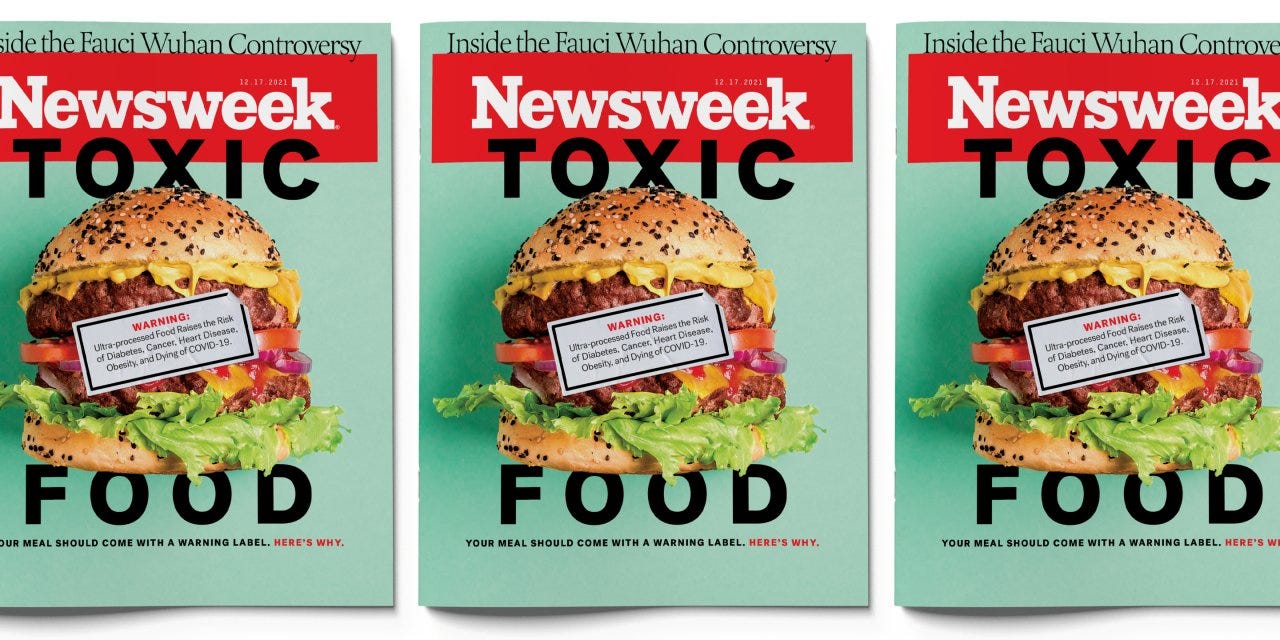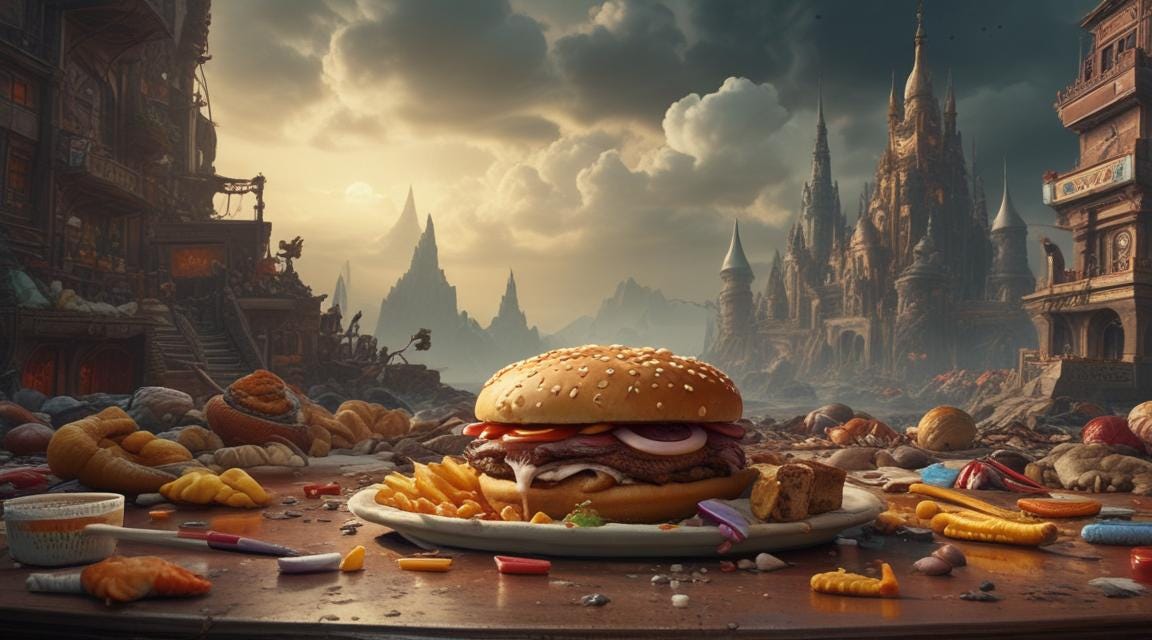Junk food, now commonly called ultra-processed food, is often ground into unrecognizable shapes and bathed in intense flavors, additives, and chemicals. These unhealthy choices are so far removed from nature that it would not be uncommon to call them an "edible science experiment."
It’s the kind of food that encourages us to consume vast quantities of harmful ingredients in every bite - concoctions so bad they almost guarantee to harm or kill—and it’s legal. Why? Because the insidious nature of ultra-processed foods lies in their delayed consequences, often masked by a healthcare system more focused on treating profitable symptoms than addressing the root cause of diet-related diseases.
It's not that doctors or consumers are clueless about what's healthy and what's not. They get it, just like smokers understand their risks, yet they persist. There might be a degree of ignorance, of addiction, or simply a surrender to the allure of convenience and taste. But whatever the reason, the consequences are clear: a society unnecessarily dying of preventable causes.
Bodily Effects
Edible science traditionally encompasses everything from the chemical composition and nutritional value of food to its processing, preservation, and safety. However, the reality is that many food scientists now focus on creating chemically enhanced, addictive products that have little to do with promoting health.
For the sake of clarity, let’s define junk food as ultra-processed "industrial formulations made entirely or mostly from substances extracted from foods (oils, fats, sugar, starch and proteins), derived from food constituents (hydrogenated fats and modified starch), or synthesized in laboratories from food substrates or other organic sources (such as flavor enhancers, colors and food additives used to make the product hyper-palatable).”
These are not foods, but formulations; chemical compounds that don’t belong to food groups. "By 2017 and 2018, this type of nutritionally devoid food accounted for 57 percent of the calories consumed by the average American—up from 54 percent in 2001 and 2002, according to one study.
While an occasional fast food meal won’t hurt, a habit of eating out could be doing a number on your health. Driver Research says 2 in 3 people (65%) consume fast food at least once a week, spending an average $148 on fast food each month and a combined $50 billion annually. A staggering 13% consume fast food every day.
Clearly, too many people eat junk food. Since the concept of fast food was first introduced during the 1950s, the types of foods that fall into this category have changed. Today, fast foods are considered to be quick and easy substitutes for home cooking, according to the National Institutes of Health.
That easy substitute has a major drawback. The Epoch Times says a main characteristic of junk food is that it tends to leave you feeling hungry again not long after you consume it. This is especially true of sugary junk foods, which send you on a quick high, only to let you crash soon thereafter. This leads to more intake of these unhealthy foods, which of course leads to displacement of the healthy variety.
The harsh truth is this: a consistent diet of junk food leads to obesity, illness, fatigue, and ultimately, a shortened lifespan. This isn't exaggeration, it's a fact backed by the World Health Organization, stating that 74% of global deaths are caused by preventable diseases. This means over 7 out of 10 people are sacrificing their health and longevity for the fleeting pleasure of junk food.
Break The Cycle
Fast food offers a tempting combination of convenience, affordability, and speed, catering perfectly to the time-pressed and budget-conscious American lifestyle. With drive-throughs and delivery services, it often seems like the easiest option after a long day, especially when compared to the effort of preparing a home-cooked meal.
These foods are also designed to deliver a signal to the brain's reward centers so quick and potent, some neuroscientists believe, that many people find it as addictive as opioids or nicotine. That makes breaking the habit harder, leading to out-of-control eating and spiraling obesity rates that have doubled since the 1980s, becoming the second leading cause of premature death. Some data show that nearly a third of Americans can be classified as obese. Even our pets are developing an obesity problem, says The American Institute For Economic Research.
It’s not impossible to get off junk food, but one truth remains constant: those who truly desire change and are willing to do the work always succeed. It's not wishful thinking; it's an absolute fact. Your health transformation rests solely on your shoulders. No doctor, dietitian, or counselor can make it happen if you don't prioritize your own well-being above the allure of junk food and early death.
Make the commitment to change. Then explore healthier alternatives, seek support and celebrate your victories week by week. Remember, it's a journey, not a race, and every small step you take towards a healthier lifestyle is a win.
P.S. If you're truly ready to transform your health and could benefit from professional guidance, I offer Skype consultations. I can provide you with a personalized dietary approach, or fitness program, and the ongoing support you need to achieve your goals, just as I've done for many other clients. E-mail: jorgmardian@fastmail.com.
Your presence here is greatly valued. If you've found the content interesting and useful, please consider supporting it through a paid subscription. While all our resources are freely available, your subscription plays a vital role. It helps in covering some of the operational costs and supports the continuation of this independent, unbiased research and journalism work. Please make full use of our free library.






![How often people eat fast food [Chart] How often people eat fast food [Chart]](https://substackcdn.com/image/fetch/w_1456,c_limit,f_auto,q_auto:good,fl_progressive:steep/https%3A%2F%2Fsubstack-post-media.s3.amazonaws.com%2Fpublic%2Fimages%2F78e81358-e958-4d3f-a3dc-92792bb22a2d_1200x600.png)

